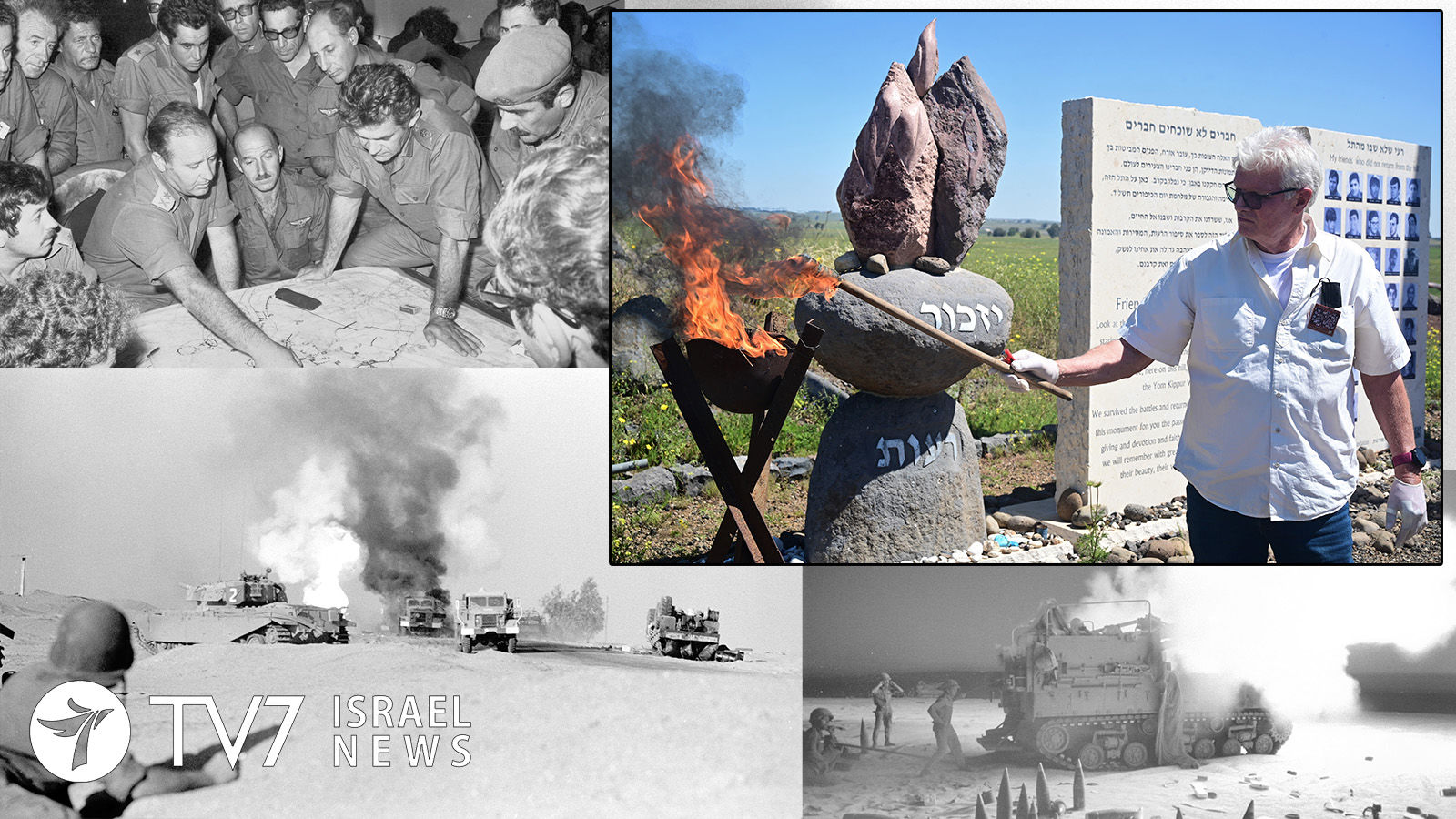Israeli leaders gathered at the national Mount Herzl cemetery in Jerusalem on Sunday for an annual memorial ceremony in honor of IDF soldiers who fell in the Yom Kippur War.
By Erin Viner
“Even today, 48 years later, we have no more important foundations than these: Our unity and mutual guarantee,” said Israeli Prime Minister Naftali Bennett, underscoring, “We learned this in the Yom Kippur War and we realize it again every day.”
“Even what happened this morning, when the security forces completed the recapture of the six terrorists who escaped from Gilboa Prison, was a good – though small – example of what I just spoke about: The escape itself was a severe mishap – operational, systemic and vis-à-vis intelligence. But whenever there is a mishap, we first take action, together, in the first stage – against the enemy, to restore deterrence, and then to correct what needs to be corrected on our part, and there is what to correct,” said Prime Minister Bennett.
President Isaac Herzog, who attended the official ceremony with First Lady Michal Herzog, acknowledged that, “Many of the challenges that the Yom Kippur War posed us are still with us today, and they must serve as a warning light for us.”
“We must do everything so that a surprise like the Yom Kippur War will never repeat itself,” said the Israeli President of the unexpected attack by a coalition of Arab states led by Egypt and Syria on the holiest day of the Jewish calendar, that led to the 6 -25 October 1973 conflict.
While he said, “we must not settle into false conceptions: we must always be ready for war,” President Herzog went on to stress that Israel also must “not miss any opportunity for peace. We must not belittle our enemies or slip into false illusions. We must always ask questions. We must always be ready for any eventuality. With one hand on the trigger, and the other holding an olive branch, extended in peace.”
“Indeed, our defensive might is not in question. Even now, the guardian of Israel neither slumbers nor sleeps (Psalm 121:4),” he stated, saying that “Our security forces, the IDF, the Police, our intelligence agencies are not silent, and they are constantly working to protect Israel’s citizens.”
The nation’s “defensive might is based, among other things, on our brave and tight contact with our neighbors, chiefly Egypt and Jordan, and now also other countries from Morocco to the Gulf, following the Abraham Accords,” said Herzog, asserting that, “This diplomatic and regional change and these important alliances are without doubt part of our answer to, and the lessons we have learned from, the Yom Kippur War.”
Between 2,521 to 2,800 Israeli troops are estimated to have been killed in defense of the nation during the Yom Kippur War.
Also speaking to those gathered, Defense Minister Benny Gantz said that “Our sons and daughters, who fell in the most difficult war of all, bravely paved the way and set the foundation on which the State of Israel was built.”
“Thanks to them we are here today, in a prosperous and powerful country. We are all obligated to remember them, and to remind ourselves of their commitment and sacrifice in order to ensure every day that their deaths were not in vain. We must be worthy in our way of life and in the way we act, in honor of those who fell for our country,” said Minister Gantz.
Saying it is critical that, “Along with the wounded and fallen IDF soldiers, today we also remember those who went missing in action during the Yom Kippur War,” the top defense chief said that efforts to “return them to Israel” remain constant, as “a moral obligation to them and to their families.”
Since Israel’s establishment in 1948, 420 Israeli soldiers have been declared “Missing in Action” (MIA).
